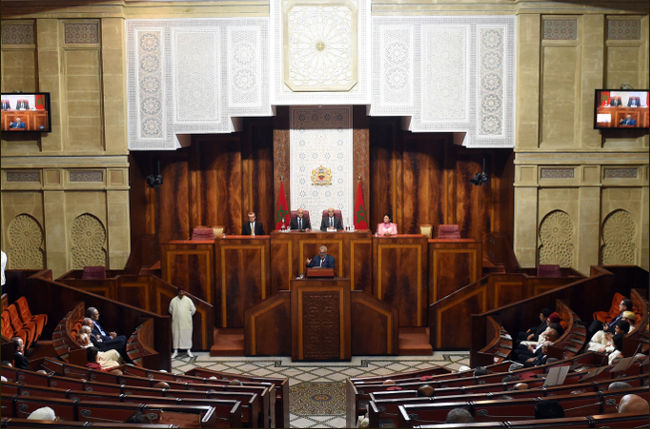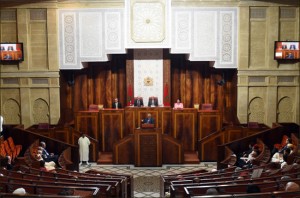By Siham Ali
in Rabat for Magharebia
The Moroccan government cannot bear the entire cost of the pension reform on its own, National Rally of Independents leader El Maati Benkaddour says.
The government and trade unions have been called to the negotiating table to hammer out reforms to Morocco’s pensions system urgently.
Controversial reforms to the pensions system are the focus of attention in Morocco.
After the Economic, Social and Environmental Council (CESE) issued an opinion emphasizing the urgent need for reform, the trade unions and ministers must sit around the same table as soon as possible to implement the overdue changes.
This was the main recommendation that was recently made by several speakers in parliament in Rabat on November 24th, which led to a meeting between government actors and unionists on Tuesday (December 2nd).
Although pension reform is very difficult to implement as well as socially and politically costly, action needs to be taken before it is too late, National Rally of Independents (RNI) leader El Maati Benkaddour said.
The government cannot bear the entire cost of this reform on its own, he added.
The problem is due to not just the way pension funds have been managed over the past few years, but also population growth and the increase in life expectancy, university professor Mohamed Jalal Adnani said.
There are now three working people for every retired person, whereas in 1986 there were 12 working people for every retired person.
According to Adnani, reform is a necessity, but several factors need to be taken into account when the reform is implemented, including the increase in the number of workers who join pension plans.
The authorities must intervene to resolve this thorny issue, which has been put off several times, academic Rachid Hasnaoui underlined.
It is time to think about boosting pension fund reserves by choosing profitable investments, he said.
Pension reform is a priority if social security benefits are to be guaranteed for a large proportion of the population of public-sector workers and their families, Finance Minister Mohamed Boussaid said.
“The government has never closed the door to dialogue with the parties concerned. The findings of the Economic, Social and Environmental Council will make it possible to reach a consensus… so that this urgent reform can be implemented as soon as possible,” the government official said.
The minister’s statement means that the government will take into account the CESE recommendations, which called for the retirement age to be raised to 63 and for contributions to be increased, economist Karim Garmat said.
According to Garmat, in all countries where pension reform has been implemented, the social cost has been very high for the government. This cannot be done without raising the retirement age and contributions even though trade unions dispute these two points, he explained.
Many people are worried about the prospect of an increase in the retirement age to 63, after the government previously suggested raising it to 62.
“Raising the retirement age cannot be a solution for everyone and all professions, especially since life expectancy in Morocco is not what it is in Western countries,” teacher Hamida Cherfi told Magharebia.
“Several factors, even the health of workers, must be taken into account. I think I wouldn’t be able to keep working as hard as I do now once I get past the age of sixty,” she said.
This view was not shared by Mohamed Kabbour, a 58-year-old accountant who works for a private-sector company.
For him, an increase in the retirement age is the best thing that could happen.
“I can keep working till I’m sixty-five and even after that. I think it’s just a matter of motivating workers,” he said. “We have to think about how to make work attractive to public-sector workers and employees.”








